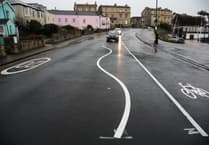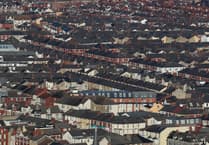Council tax could go up by 100% on second homes in Bath and North East Somerset.
A proposed move, set to be decided by Bath and North East Somerset Council next week, would double the council tax bills of second homes in the area. But the rise would not come into effect until April 1, 2025.
Councillors are also set to decide whether to charge extra council tax on “long-term empty” homes and on whether to approve a change to council tax support with the aim of “increasing fairness.”
The Levelling-Up and Regeneration Act 2023, which became law in October, gives councils the ability to increase council tax by 100% on homes which are kept substantially furnished but are only occupied periodically with no-one resident for council tax purposes.
There are 858 second homes in Bath and North East Somerset which would be hit by council tax hike — enough to rake in an estimated £1.84m more in council tax in a year. After the sections of council tax which go to the police force, fire service, and parish councils, this would leave £1.48m as extra income for Bath and North East Somerset Council.
A report going before the council stated that an increased number of second homes in the area had a “negative impact,” in terms of fewer homes available to meet local needs and “local residents being pushed out of the housing market.”
The report stated: “The recommendations in the report will either incentivise owners of second homes to sell them, thus returning them to local housing stock or increase contributions to the council and help fund vital services.”
The council is facing a £35m budget gap over the next five years and has warned it will need to make “extremely challenging” efficiencies. The council is also facing a £6.5m overspend in the current financial year, largely driven by the council’s children’s services running £4.6m over budget due to an increasing number of looked after children and the increasing cost of home-to-school transport.
At a meeting on November 9, council leader Kevin Guy warned: “If the funding situation — particularly for adults and children’s services — is not rectified by this government or the next government, it is only a matter of time before all local authorities in the United Kingdom go bankrupt.”
Another council tax change set to be considered next week affects “long-term empty” homes. Residential properties which have been unoccupied for between two and five years currently pay a 100% council tax premium, with an even higher premium for homes empty even longer. Under another proposed change permitted under the Levelling-Up and Regeneration Act 2023, the council plans to charge the premium once a home has been empty for one year, rather than two.
162 empty properties currently pay the 100% premium. The proposed change — which would come into effect from April 1 2024 — would mean 340 other properties which have been empty for between one and two years would need to pay the premium. This would bring in an estimated £670,000 more in council tax, of which approximately £540,000 would go to Bath and North East Somerset Council.
Councillors will also be voting on an update to council tax support so that the housing costs and childcare elements of Universal Credit are no longer considered income. The change would lower council tax for 2,768 households but reduce the amount of support offered to 1,127 others. The changes would have an estimated cost to the council of £225,000.
Discussing the proposed changes to council tax support at a council meeting in September, council cabinet member for resources Mark Elliot said: “It is not a cost-cutting exercise. We are trying to improve fairness.”
Council tax — which currently brings in £113m for Bath and North East Somerset Council, just over a third of the council’s £300m operating costs — is paid based on the value of your home. Councils set the level of tax an average “band D” home will pay, and the value of your home determines whether you are in a band that pays a percentage above or below this amount. But a bizarre twist of the council tax system is that, because of the potential unpopularity of re-evaluating homes for council tax, households still pay council tax based on what their house would have been worth in 1991.
The amount that councils can increase the tax each year is capped by the government. Council tax for all households in Bath and North East Somerset went up 4.99% this year, the maximum amount, and council reports suggest it could again next year. Two percentage points of that rise are ring fenced for spending on adult social care.
The proposals on second homes, long-term empty properties, and council tax support will be decided by councillors at a full meeting of Bath and North East Somerset Council on Thursday November 30.
LRDS, John Wimperis




